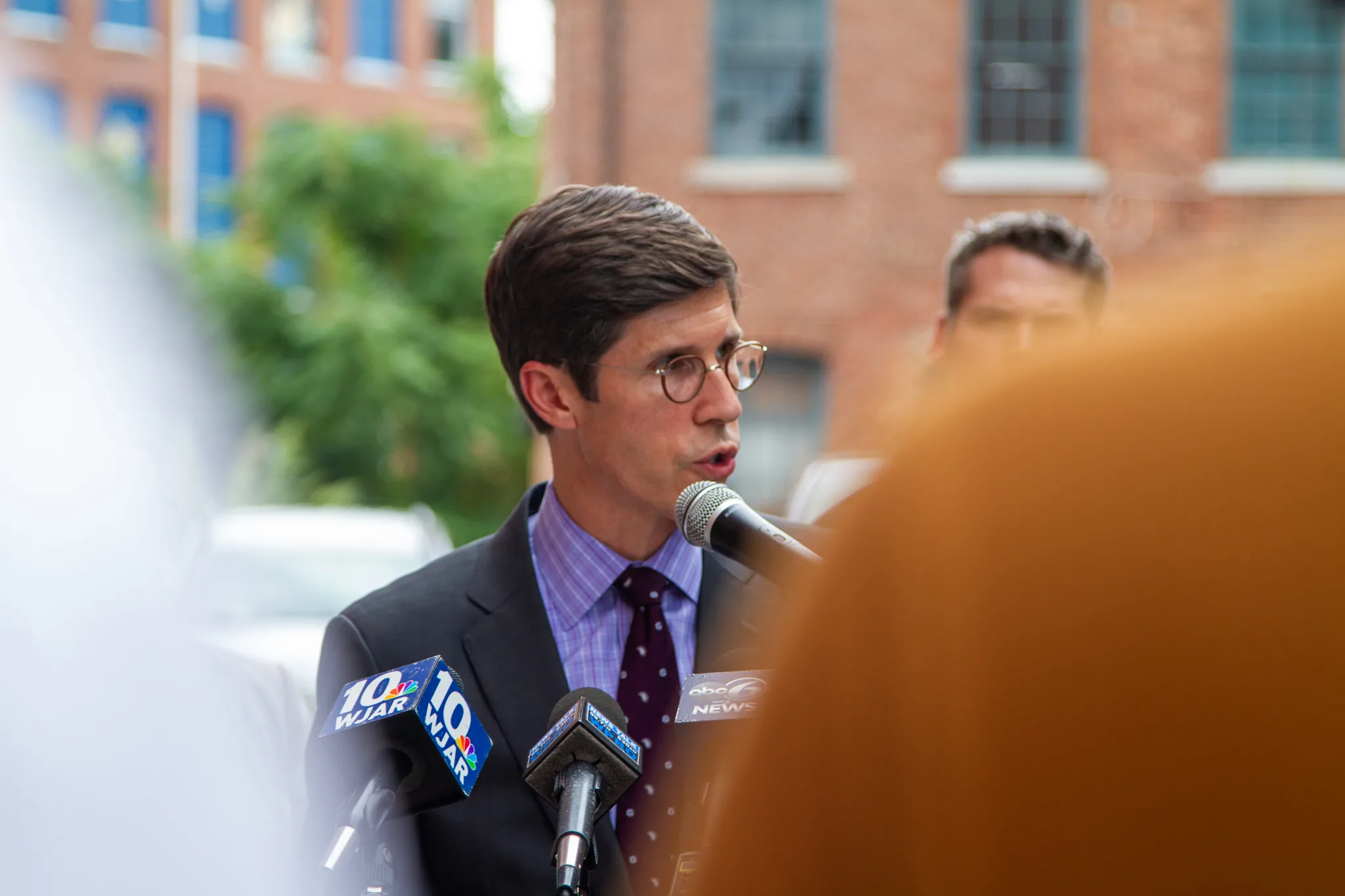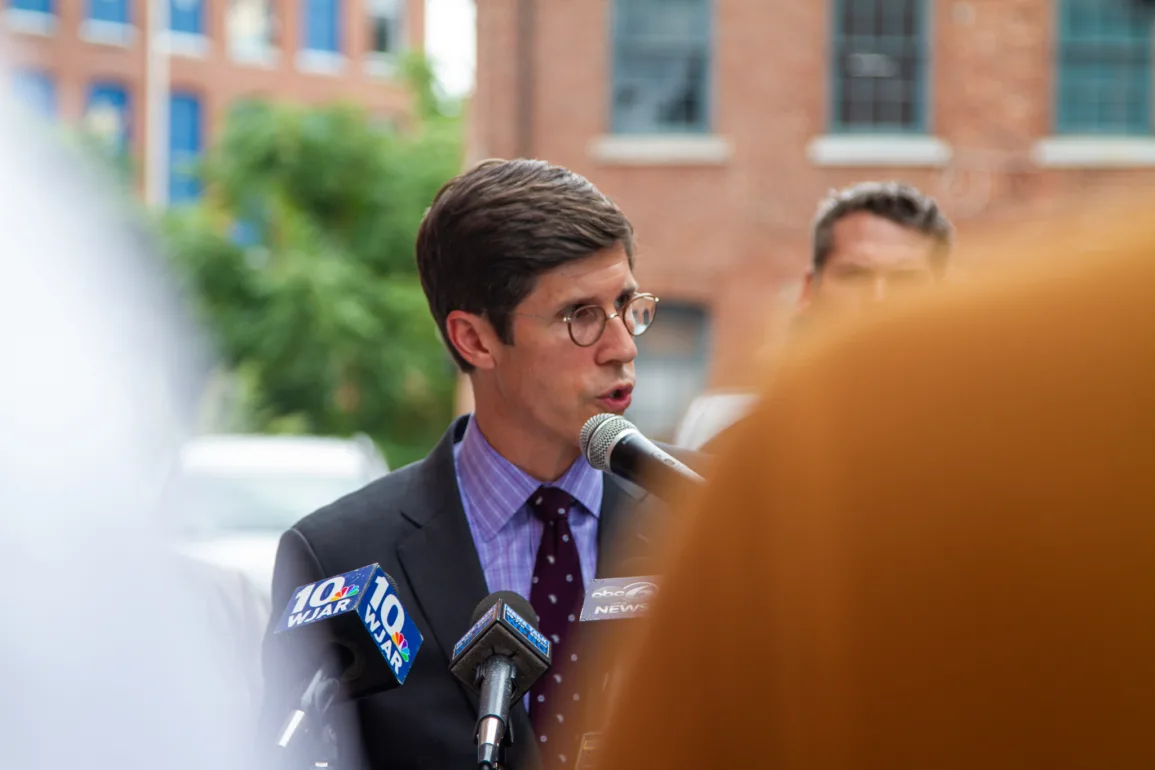
Providence Mayor Brett Smiley says he wants to nearly double the amount of funds United Way will administer under the city’s COVID-19 Equities Program, also known as its reparations budget.
The reparations initiative, passed in 2022 under previous mayor Jorge Elorza, set aside $10 million for public programs meant to help narrow the racial wealth gap in Providence. The city has already allocated $1.75 million of the funding to United Way, a nonprofit that aims to address the root causes behind unequal opportunities for people of color.
Now Smiley is asking the city’s Board of Contract and Supply to consider raising the total amount for United Way to $3.35 million, which equals about a third of the funds in the reparations program.
A press release from the mayor’s office said the reason for increasing the funding was because Smiley believed the nonprofit had not received enough in order to enact the intention behind the legislation.
“I am incredibly excited to partner with United Way of Rhode Island to advance the many programs included in the COVID-19 Equities Program,” Mayor Brett P. Smiley wrote in a press release. “United Way is a trusted community partner taking meaningful steps to close local equity gaps.”
The Board of Contract and Supply is expected to weigh the new funding amount during a meeting on Monday.
In addition to the amount previously allocated to United Way and the proposed amount to be allocated to United Way, the city has already spent roughly $275,000 of the funding on the following programs and groups: $150,000 To Rhode Island Black Business Association, $20,000 to Inspiring Minds, $100,000 to Interlace Grant Fund (Dirt Palace Public Projects), and $3,430 to SEIU Education and Support Funding.
Reparations programs elsewhere in the country have typically included things like payments and apologies to descendants of enslaved people, or people who have experienced inequality caused by the slave trade and institutional racism. Providence’s program had previously come under fire for not specifying race. However, United Way says it has a plan to address that.
“There have been criteria that have been arrived at that United Way will follow in order to make sure that the resources are going as close to the needed communities, the households as possible, including people of African heritage, indigenous heritage, qualified census tracts, and people experiencing poverty,” said Larry Warner, the Chief Impact and Equity Officer for United Way.
Warner gave one example of how his organization plans to engage with Black Rhode Islanders: barbershops.
“If you think about barbershops and salons, those are often places where communities of color gather and they share information,” Warner said. “They have relationships with each other and with barbers who are, unseemingly, pillars of the community,” said Warner.
He said United Way already has a program to increase literacy in Black communities by providing barbershops with culturally relevant books for kids.
Here is the full list of the programs created under the reparations program United Way will administer:
- Creation of Policy & Research Center: $150,000
- Collaborate with Neighborhood Providers Including Barbershops: $250,000
- Capacity Investments in Community Organizations: $500,000
- Establish A Fund Dedicated to Urban Renewal Impacts: $200,000
- Develop Grant Program to Assist Urban Renewal Impacted Neighborhoods: $200,000
- Invest in District-Wide Coordinator for Educational Enrichment: $100,000
- Advancing Public Education Campaigns: $50,000
- Creation of K-12 “A Matter of Truth” Curriculum: $50,000
- K-12 Curriculum Grounded In Rhode Island & New England History $100,000
If this round of funding is approved for United Way, the city will have $6.3 million left of the reparations funding, which a spokesperson for the city said it was on track to spend. The funding comes from the American Rescue Plan Act and must all be allocated before the end of 2024. American Rescue Plan Act funds were intended to be used to address inequality in the United States.
Metro Reporter Olivia Ebertz can be reached at olivia@thepublicsradio.org.


